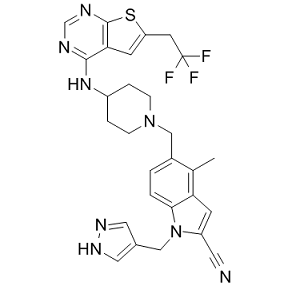Our study has found that acupuncturists are interested in the physical symptoms that may accompany depression, and will routinely address these symptoms as part of the treatment. One can speculate that this focus on physical symptoms may in part explain why the acupuncturists in this trial, who reported being less experienced in treating moderate to severe depression, nevertheless delivered just as good outcomes as the counsellors, who encountered this level of depression more commonly in routine practice. Further research is needed into the patient perspective on the treatment of depression with co-morbidities, and specifically the value they place on the comorbid symptoms being addressed concurrently. Our research raises some important questions about the clinical (R)-(-)-Modafinic acid practice of acupuncturists and counsellors when treating a population with depression when combined with unmanaged drug and alcohol addictions. Further research might be useful to explore appropriate strategies, which might be about ensuring the availability of options, including the involvement of other agencies, and practical support. Postoperative cognitive dysfunction is usually detected among aged patients after surgery, especially after critical illness. It characterizes with impaired memory, information processing, concentration and mental flexibility. Occurrence of POCD is closely associated with increased incidence of postoperative complications, longer hospitalization, and higher mortality of 6 months. The profound socioeconomic significance of POCD makes it the subject of many investigations. Clinical researches have shown that brain areas involved in POCD include frontal, parietal, temporal, occipital, hippocampal, insular, cingulated, thalamic and cerebellar regions. Risk factors of POCD include preoperative factors, perioperative factors, and postoperative factors. Among these risk factors, age is the only risk factor for long-term POCD. Further animal studies have shown that anaesthetics neurotoxicity, systemic inflammation induced by surgery trauma, and acceleration of ongoing endogenous neurodegenerative processes all contribute much to POCD. For example, Terrando et al found that blocking the signals of TNF-a and IL-1 effectively decreased the impairment of cognitive function of adult mice after surgery. Li et al found that minocycline, a drug of antiinflammation, mitigated isoflurane-induced cognitive impairment in aged rats. However, there is an obvious translational gap between clinical studies and animal studies of POCD. Animal studies of POCD mainly focused on the changes of structures and functions of hippocampus induced by surgery, neglecting the fact of POCD that multiple brain regions and multiple brain functions are affected in patients. It remains unclear whether POCD in animals involves other brain areas besides hippocampus; how age influences POCD of young adult and aged animals. The hippocampus and cingulate cortex are important structures involved in cognitive function. Our previous study has shown that small volume of hippocampus is a valuable predictor of POCD in aged patients. Hippocampal volume  is negatively related with the score of neuropsychological tests in aged patients after surgery. Cingulate cortex is associated with working memory, long-term memory, mental Diperodon flexibility, and selective attention, which are totally impaired in POCD. In addition, synapse plasticity is the structure base of cognitive functions and is usually evaluated by changes of dendritic spines of neurons.
is negatively related with the score of neuropsychological tests in aged patients after surgery. Cingulate cortex is associated with working memory, long-term memory, mental Diperodon flexibility, and selective attention, which are totally impaired in POCD. In addition, synapse plasticity is the structure base of cognitive functions and is usually evaluated by changes of dendritic spines of neurons.